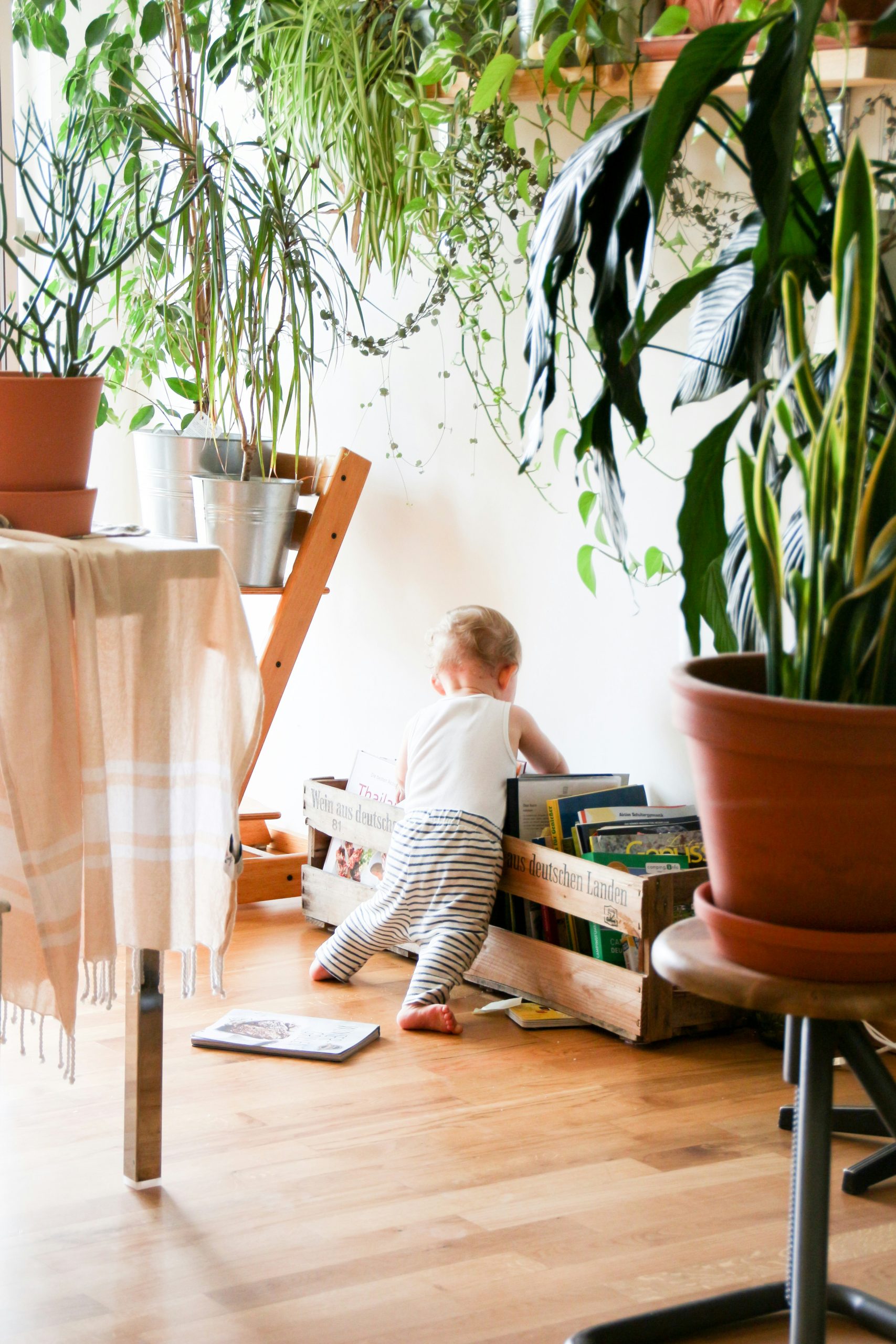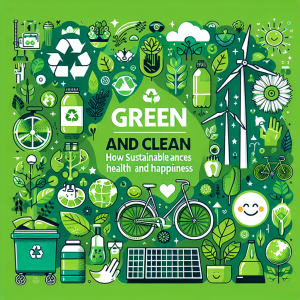Revolutionizing Green Living with Innovative Eco-Friendly Products
Revolutionizing green living continues to gain momentum as innovative eco-friendly products transform how we approach sustainability. As environmental consciousness rises, individuals and companies prioritize resources that lessen the ecological footprint. These advancements largely focus on renewable energies, waste reduction, and sustainable manufacturing processes. In exploring these developments, it is essential to delve into the specifics of what makes these innovative products game changers within the eco-friendly sphere.
Renewable Energy Solutions
One of the cornerstones of revolutionizing green living is the increased adoption of renewable energy sources. Solar panels and wind turbines are no longer niche technologies but have become highly efficient and cost-effective. Modern solar panels integrate bifacial solar cell technology, capturing sunlight on both sides and increasing energy yield. These innovations have made solar energy accessible to a broader spectrum, even affecting urban landscapes where space might be limited.
Wind energy, while traditionally associated with rural expanses, has also seen improvements. Vertical-axis wind turbines (VAWTs) are smaller, quieter, and can function efficiently in diverse environments, including urban settings. Their design allows for energy production even at lower wind speeds, making them versatile and practical. As countries push towards cleaner energy policies, deploying these technologies on a larger scale can fundamentally alter our energy consumption methods and drastically reduce reliance on fossil fuels.
Sustainable Construction Materials
The construction industry, known for significant carbon emissions, is seeing substantial shifts towards sustainability. Innovative materials like cross-laminated timber (CLT) have emerged as a viable alternative to traditional concrete and steel. CLT panels are composed of multiple layers of wood stacked perpendicularly, providing strength and stability. As a renewable resource, timber used in CLT significantly lowers carbon emissions and energy consumption during construction.
Further contributing to eco-friendly building practices are hempcrete and mycelium-based materials. Hempcrete, made from a mixture of hemp hurds and lime, is a durable, insulating, and non-toxic alternative to traditional concrete. Its breathability and mold resistance make it a perfect fit for new-age green buildings. Meanwhile, mycelium, the root structure of fungi, is fashioned into bricks. Not only are they completely biodegradable, but they also offer excellent insulation and can grow into the desired shapes with minimal energy input.
Zero-Waste and Circular Economy Initiatives
The move towards zero-waste solutions mirrors society’s growing awareness of the problems posed by single-use plastics and excessive waste. Companies leading this charge have designed biodegradable alternatives that are functional and aesthetically pleasing. Biodegradable, compostable containers and cutlery made from materials like plant fibers or cornstarch offer viable replacements for traditional plastic products.
Additionally, the circular economy is a major component of sustainable product innovation. This model emphasizes refurbishing and recycling as opposed to traditional manufacturing methods, which often lead to increased waste. Companies are developing systems where products are designed with their end-of-life in consideration, ensuring materials can be reused or upcycled. Tech companies have started implementing modular phone designs, allowing users to replace or upgrade individual components rather than discarding entire devices, significantly reducing electronic waste.
Eco-Friendly Transportation Solutions
Transportation plays a critical role in global carbon emissions, prompting considerable innovation in this sector. Electric vehicles (EVs), once limited in range and availability, are now rapidly evolving. The introduction of advanced lithium-silicon batteries allows for faster charging and greater energy capacity. Modern EVs boast impressive mileage ranges on a single charge, making them an attractive alternative to traditional vehicles.
Public transportation is also seeing substantial eco-friendly advancements. Electric buses and trains are increasingly replacing older, diesel-powered models. Hydrogen fuel cells offer another promising avenue, with the ability to run vehicles on zero-emission hydrogen power. These sustainable transportation solutions not only aim to curtail carbon emissions but also promise reductions in pollution, contributing to cleaner air in urban areas.
Smart Home Technologies
Integrating technology into home living accommodations provides a substantial leap towards sustainable lifestyles. Smart thermostats, plug monitors, and LED lighting systems exemplify how homes can dramatically reduce energy consumption. Smart thermostats optimize heating and cooling by learning a household’s patterns, reducing unnecessary energy use. Similarly, smart plugs allow users to monitor and control energy usage from anywhere, promoting mindful consumption.
LED lighting, far more efficient and longer-lasting than traditional bulbs, further emphasizes the shift towards efficient home products. Some LED systems even offer smart home integration, enabling users to control lighting environments through their smartphones or voice-activated devices. The combination of these technologies creates a synergistic approach to energy savings, all while maintaining comfort and convenience.
Green Cleaning Products
Traditional cleaning chemicals often harbor environmental hazards, releasing volatile organic compounds and contributing to water pollution. The demand for green cleaning products has spurred significant innovation. These products utilize plant-based ingredients and essential oils, proving to be effective alternatives without detrimental environmental impacts. Furthermore, many new cleaning solutions are packaged in biodegradable or recyclable materials, eliminating the excess waste associated with plastic packaging.
Environmentally-friendly cleaning products go beyond household use, with industrial and commercial sectors also moving towards greener solutions. Companies are investing in concentrated formulas, which reduce water usage and packaging waste. This ability to maintain cleanliness and hygiene without compromising environmental values reflects the broader shift in consumer demand for responsible, sustainable products.
Innovative Eco-Packaging Solutions
Packaging innovation remains an essential frontier in minimizing environmental impact. The rise of biodegradable and compostable packaging materials seeks to replace traditional options that contribute to global waste issues. Materials derived from cornstarch, mushrooms, and seaweed offer renewable alternatives that decompose naturally, significantly reducing pollution.
Moreover, consumers are gravitating toward reduced packaging designs and bulk purchase options that minimize waste. Brands have started adopting minimalist packaging principles and utilizing QR codes or digital instructions to maintain important product information without additional paper use. As more companies recognize the value of these innovative strategies, eco-packaging is set to redefine standards across various industries.
Innovative eco-friendly products are at the forefront of a global transformation towards more sustainable living practices. These advancements not only offer practical alternatives to traditional methods and products but also encourage a shift in consumer attitudes and business practices.



